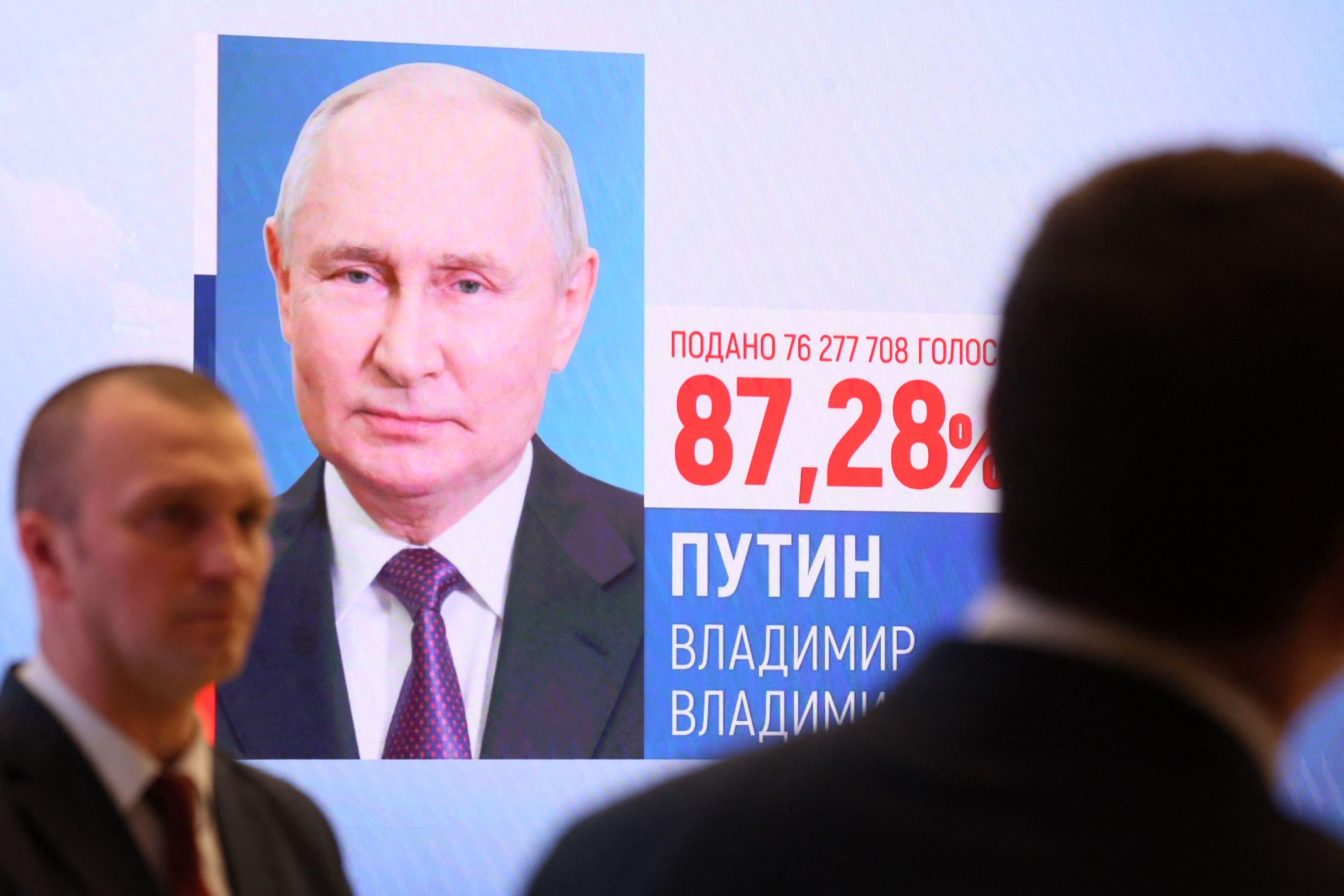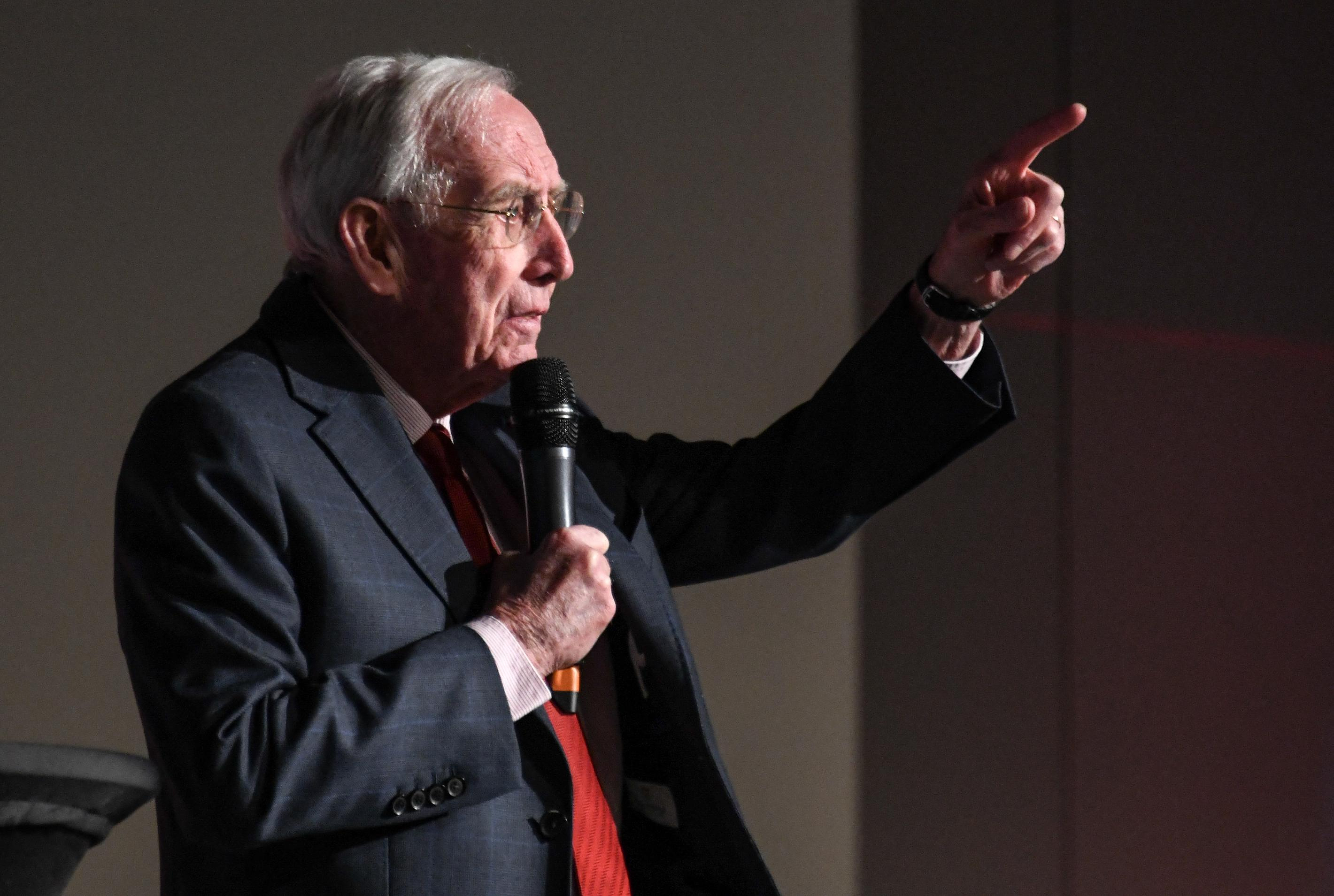Vladimir Putin won re-election with more than 87% of the votes on Sunday March 17. But the veracity of this record result, hailed by the Russian president, is called into question by the independent Russian press. According to estimates from several media outlets, the fraud committed during the 2024 presidential election would be on an unprecedented scale. “Around 22 million votes obtained by Vladimir Putin were falsified,” says the investigative site Meduza. When the exile media Novaya Gazeta Europe mentions “31.6 million falsified ballots”. This means “that around 50% of all votes for Putin were falsified,” specifies the newspaper, which recalls that the Russian leader has 64.7 million votes – out of 76 million voters.
These results relayed by independent media come from analyzes by experts who attempted to assess the extent of electoral fraud. To do this, they rely on a method that has existed for more than ten years: the Shpilkin method, named after the statistician Sergei Shpilkin, which analyzes electoral results in Russia since 2007. This method aims to identify polling stations that present “abnormal” and “lag” results compared to the participation rate and the number of votes, deciphers Anna Colin Lebedev, lecturer in political science at Paris-Nanterre University. “The Shpilkin curves indeed show abnormally round results, with many 70, 75, 80 or 85% votes for Putin. But very few scores with numbers after the decimal point,” continues the specialist.
Concretely, these 22 to 32 million false votes in favor of Putin recorded by the Russian media are partly the consequence of “ballot box stuffing and rewriting of the results”, concludes Anna Colin Lebedev. The election observation organization Golos, banned from Russia before the election and whose leader is imprisoned, even speaks of “the biggest electoral jam in Russian history”. The perpetrators of the fraud - mainly teachers from the schools where the polling stations are located - therefore artificially inflated the president's score thanks to fictitious votes.
But this electoral fraud takes several forms, depending on the different elections. A large majority of the votes obtained by Vladimir Putin in the polling stations can be explained by increased pressure on voters. Especially on “civil servants, employees and companies linked to the State because they represent half of the Russian economy,” notes Anna Colin Lebedev. “The head of a local company which depends on state subsidies will, for example, receive instructions to encourage his employees to vote for Putin, with a photo of the checked ballot as proof,” illustrates the specialist.
She adds that this information comes from “numerous testimonies in business conversation groups”. The researcher thus describes these votes as “disingenuous” because they are real ballots, but motivated by pressure. This pressure is also exerted by the military and the police forces deployed en masse in the polling stations, also due to the holding of the “Midi against Putin” protest action, desired by Navalny before his death.
This practice of ballot stuffing has existed for a long time, but was “particularly intense this year compared to previous elections”, estimates Anna Colin Lebedev. According to the researcher, this is explained by an “excess of zeal” at the local level. “In general, the presidents of local electoral commissions do not receive precise numerical instructions to follow on the percentage of votes that Putin should receive. But rather: “Putin must not have less than this number of votes” or: “the participation rate must not be less than this number”,” she gives as an example.
Home voting has also been the target of falsification. It is mainly organized in the Ukrainian regions annexed by Russia with a person who comes to their home with a ballot box. “Nothing is controllable: neither the number of voters, nor the number of ballots,” points out Anna Colin Lebedev. “The authorities report a participation rate which exceeds 90%. However, these territories are largely depopulated, with part of the Ukrainian population in exile since the start of the war,” indicates the researcher.
As for electronic voting, used for the first time during a presidential election, no figures are yet circulating. But Anna Colin Lebedev does not rule out the hypothesis of virtual ballot stuffing. “The authorities tested this election during Covid and realized that it was a more effective way to control it,” analyzes the specialist.
Also read: “Damaged triumph”, “farcical election”, “farce”: the Western press mocks the re-election of Vladimir Putin
The holding of this presidential election took place more largely in “more intense lockdown conditions than in 2018”, with “no more opposition candidates, voices critical of Putin”, contextualizes Anna Colin Lebedev . “Two opposition candidates (Boris Nadejdine and Ekaterina Dountsova, Editor’s note) presented themselves, but their candidacies had not been registered,” recalls the researcher. As for the three alternative candidates to Putin, Nikolai Kharitonov, Leonid Sloutski and Vladislav Davankov, they were only “appearances” because “loyal to power”, she underlines. The investigative media Meduza also points out that the results of these other candidates would also have been falsified. Vladislav Davankov's votes would thus have been reallocated to Vladimir Putin so that no other figure emerges in public opinion.

 Poland, big winner of European enlargement
Poland, big winner of European enlargement In Israel, step-by-step negotiations for a ceasefire in the Gaza Strip
In Israel, step-by-step negotiations for a ceasefire in the Gaza Strip BBVA ADRs fall almost 2% on Wall Street
BBVA ADRs fall almost 2% on Wall Street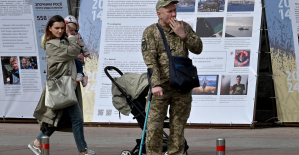 Ukraine has lost 10 million inhabitants since 2001... and could lose as many by 2050
Ukraine has lost 10 million inhabitants since 2001... and could lose as many by 2050 Sánchez cancels his agenda and considers resigning: "I need to stop and reflect"
Sánchez cancels his agenda and considers resigning: "I need to stop and reflect" The Federal Committee of the PSOE interrupts the event to take to the streets with the militants
The Federal Committee of the PSOE interrupts the event to take to the streets with the militants Repsol: "We want to lead generative AI to guarantee its benefits and avoid risks"
Repsol: "We want to lead generative AI to guarantee its benefits and avoid risks" Osteoarthritis: an innovation to improve its management
Osteoarthritis: an innovation to improve its management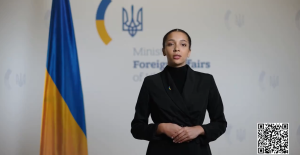 Ukraine gets a spokesperson generated by artificial intelligence
Ukraine gets a spokesperson generated by artificial intelligence The French will take advantage of the May bridges to explore France
The French will take advantage of the May bridges to explore France Organic flour contaminated by a recalled toxic plant
Organic flour contaminated by a recalled toxic plant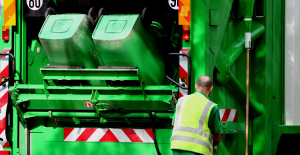 2024 Olympics: Parisian garbage collectors have filed a strike notice
2024 Olympics: Parisian garbage collectors have filed a strike notice Death of Paul Auster: Actes Sud says he is “lucky” to have been his publisher in France
Death of Paul Auster: Actes Sud says he is “lucky” to have been his publisher in France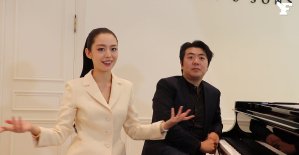 Lang Lang, the most French of Chinese pianists
Lang Lang, the most French of Chinese pianists Author of the “New York Trilogy”, American novelist Paul Auster has died at the age of 77
Author of the “New York Trilogy”, American novelist Paul Auster has died at the age of 77 To the End of the World, The Stolen Painting, Border Line... Films to watch this week
To the End of the World, The Stolen Painting, Border Line... Films to watch this week Omoda 7, another Chinese car that could be manufactured in Spain
Omoda 7, another Chinese car that could be manufactured in Spain BYD chooses CA Auto Bank as financial partner in Spain
BYD chooses CA Auto Bank as financial partner in Spain Tesla and Baidu sign key agreement to boost development of autonomous driving
Tesla and Baidu sign key agreement to boost development of autonomous driving Skoda Kodiaq 2024: a 'beast' plug-in hybrid SUV
Skoda Kodiaq 2024: a 'beast' plug-in hybrid SUV The home mortgage firm rises 3.8% in February and the average interest moderates to 3.33%
The home mortgage firm rises 3.8% in February and the average interest moderates to 3.33% This is how housing prices have changed in Spain in the last decade
This is how housing prices have changed in Spain in the last decade The home mortgage firm drops 10% in January and interest soars to 3.46%
The home mortgage firm drops 10% in January and interest soars to 3.46% The jewel of the Rocío de Nagüeles urbanization: a dream villa in Marbella
The jewel of the Rocío de Nagüeles urbanization: a dream villa in Marbella Europeans: a senior official on the National Rally list
Europeans: a senior official on the National Rally list Blockade of Sciences Po: the right denounces a “drift”, the government charges the rebels
Blockade of Sciences Po: the right denounces a “drift”, the government charges the rebels Even on a mission for NATO, the Charles-de-Gaulle remains under French control, Lecornu responds to Mélenchon
Even on a mission for NATO, the Charles-de-Gaulle remains under French control, Lecornu responds to Mélenchon “Deadly Europe”, “economic decline”, immigration… What to remember from Emmanuel Macron’s speech at the Sorbonne
“Deadly Europe”, “economic decline”, immigration… What to remember from Emmanuel Macron’s speech at the Sorbonne These French cities that will boycott the World Cup in Qatar
These French cities that will boycott the World Cup in Qatar Top 14: Fijian hooker Narisia leaves Racing 92 and signs for Oyonnax
Top 14: Fijian hooker Narisia leaves Racing 92 and signs for Oyonnax Europa League: Jean-Louis Gasset is “wary” of Atalanta, an “atypical team”
Europa League: Jean-Louis Gasset is “wary” of Atalanta, an “atypical team” Europa League: “I don’t believe it…”, Gasset jokes about Aubameyang’s age
Europa League: “I don’t believe it…”, Gasset jokes about Aubameyang’s age Foot: Rupture of the cruciate ligaments for Sergino Dest (PSV), absent until 2025
Foot: Rupture of the cruciate ligaments for Sergino Dest (PSV), absent until 2025